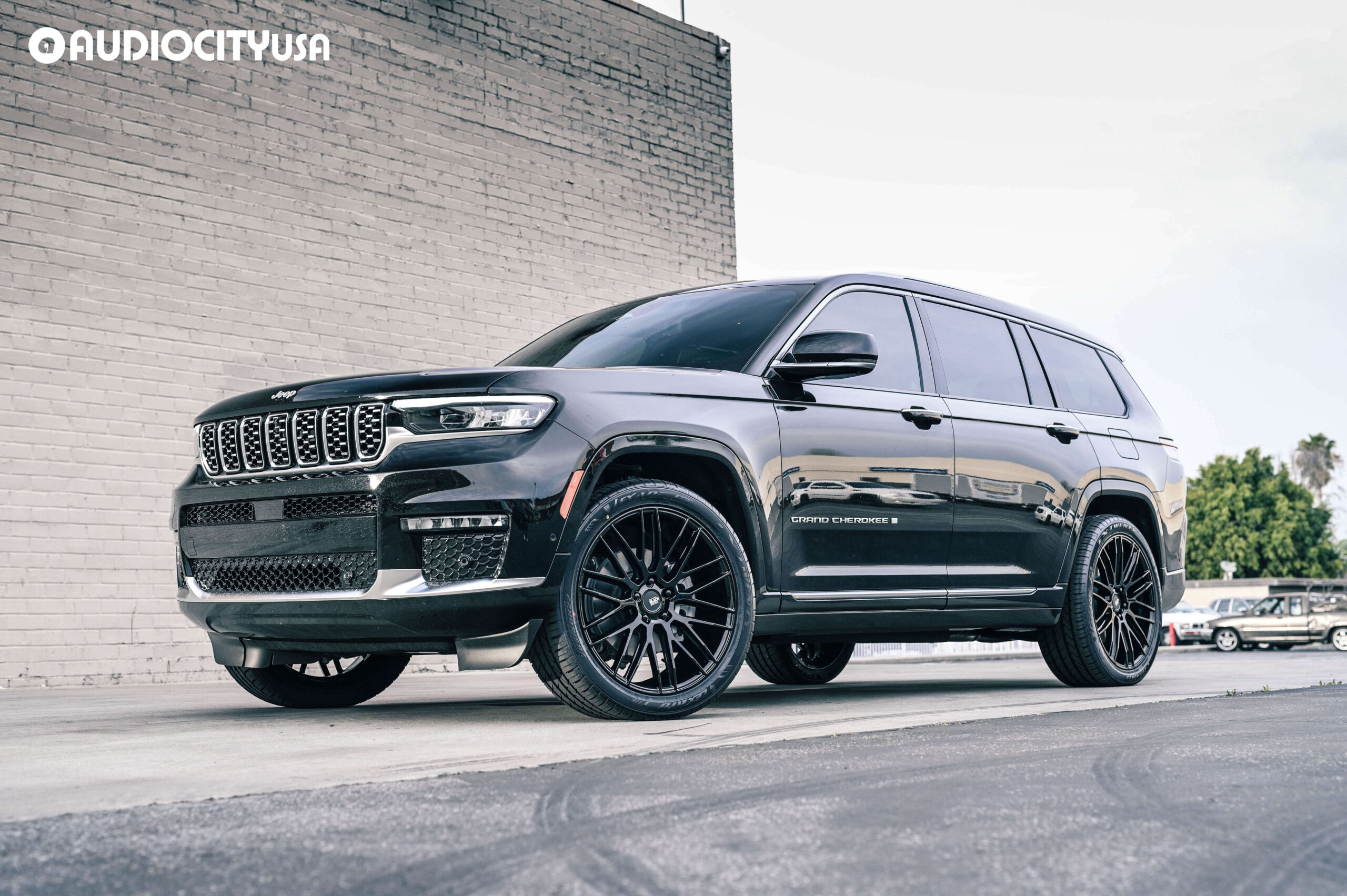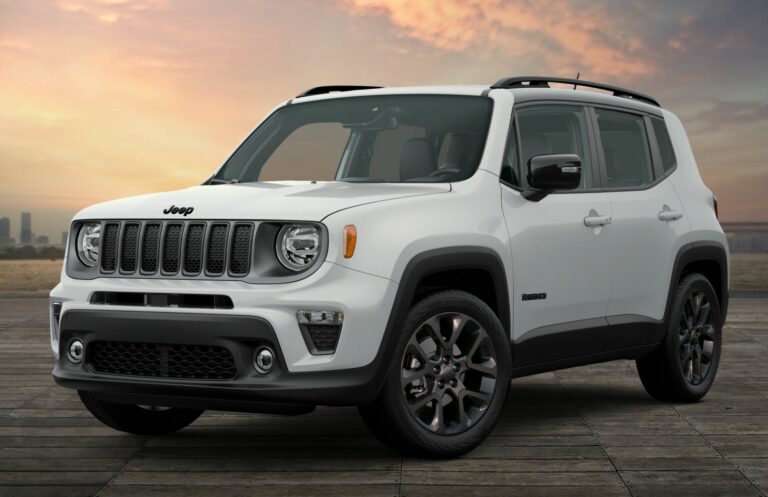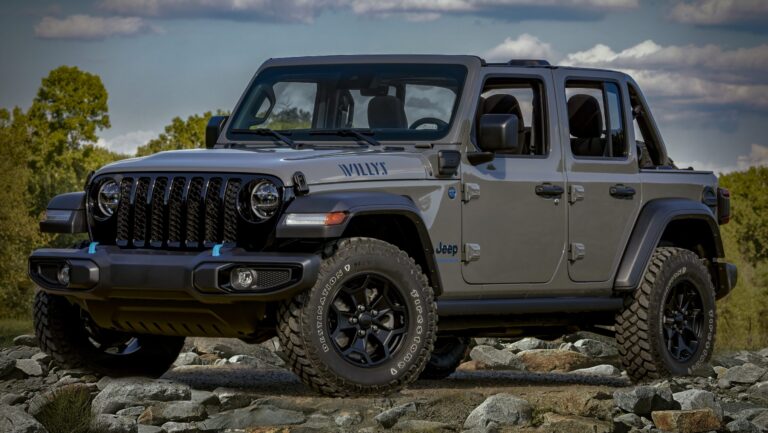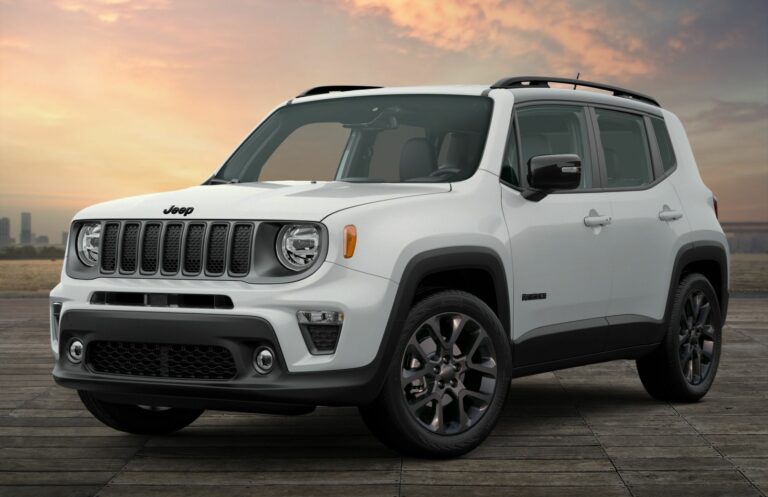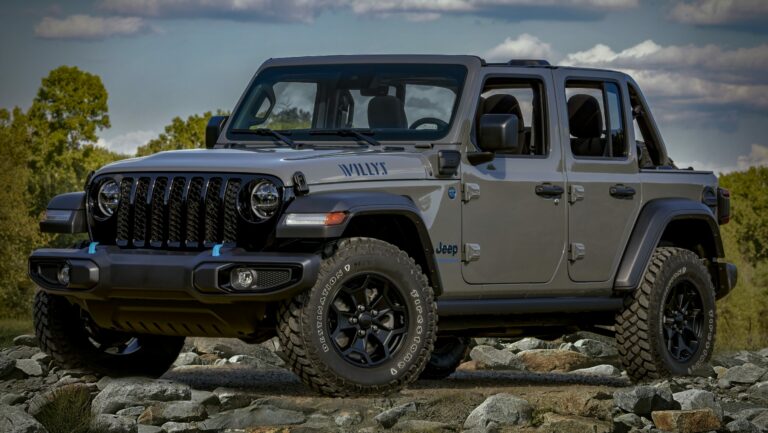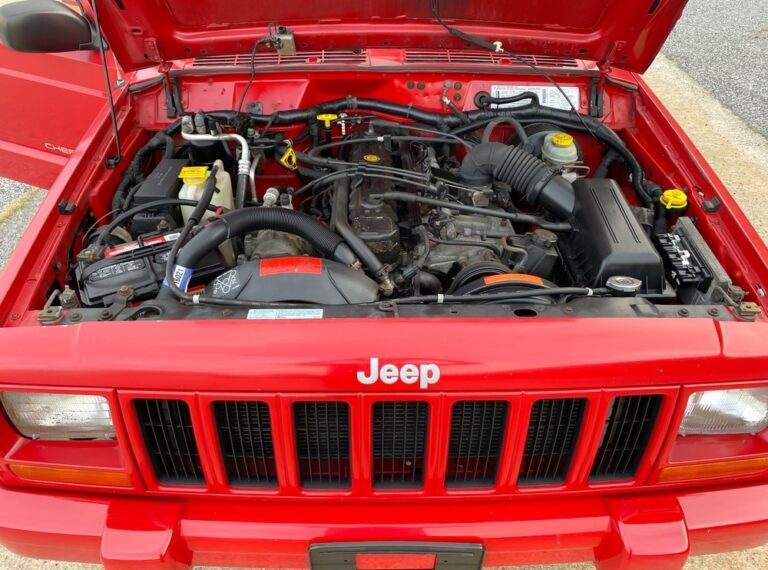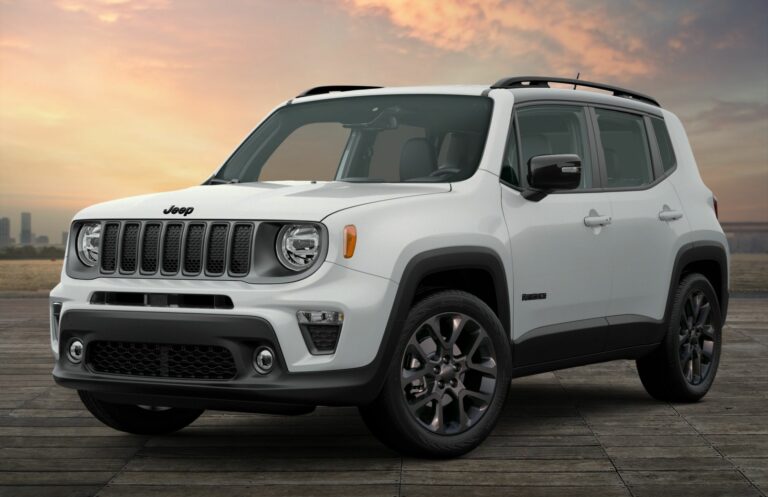Jeep Cherokee Wheels: The Ultimate Guide to Enhancing Your Ride
Jeep Cherokee Wheels: The Ultimate Guide to Enhancing Your Ride jeeps.truckstrend.com
The Jeep Cherokee, a legendary nameplate synonymous with adventure and capability, owes much of its iconic status to its robust design and off-road prowess. Central to both its performance and aesthetics are its wheels. More than just circular components that allow the vehicle to move, Jeep Cherokee wheels are critical elements that influence everything from ride comfort and handling to fuel efficiency and, most importantly, the vehicle’s ability to conquer diverse terrains. Choosing the right set of wheels is not merely a stylistic decision; it’s a strategic enhancement that can profoundly impact your Cherokee’s character and capabilities. This comprehensive guide will delve into the intricate world of Jeep Cherokee wheels, helping you make informed decisions to optimize your driving experience.
Understanding Jeep Cherokee Wheels: Beyond the Basics
Jeep Cherokee Wheels: The Ultimate Guide to Enhancing Your Ride
At its core, a wheel is a simple device, but in the context of a vehicle like the Jeep Cherokee, it’s a precisely engineered component. Understanding the anatomy and specifications of these wheels is the first step toward unlocking their full potential.
- Rim: The outer circular part of the wheel that holds the tire.
- Spokes/Design: The structural elements connecting the hub to the rim, greatly influencing the wheel’s aesthetics and strength.
- Hub Bore: The hole in the center of the wheel that fits over the vehicle’s hub. Proper fitment here (hub-centric vs. lug-centric) is crucial for preventing vibrations.
- Bolt Pattern: The arrangement of lug holes. This is perhaps the most critical specification for fitment, dictating which wheels will physically bolt onto your Cherokee. Jeep Cherokee models have historically used two primary patterns:
- 5×4.5" (5×114.3mm): Common for classic XJ Cherokees (1984-2001) and KJ/KK Liberty models (2002-2012).
- 5x110mm: Used by the modern KL Cherokee (2014-2023).
- Diameter (Size): Measured in inches (e.g., 15", 17", 20"). Larger diameters often mean lower profile tires, affecting ride quality and aesthetics.
- Width: Also measured in inches (e.g., 7", 8.5"). Determines how wide a tire can be mounted and influences the tire’s contact patch.
- Offset: The distance from the wheel’s mounting surface to the true centerline of the wheel.

- Positive Offset: The mounting surface is closer to the front (outer) face of the wheel. Wheels sit further in the fender.
- Negative Offset: The mounting surface is closer to the rear (inner) face of the wheel. Wheels stick out further from the fender, often desired for a wider stance or off-road stability.
- Zero Offset: The mounting surface is exactly at the centerline.
- Backspacing: The distance from the wheel’s mounting surface to the back edge of the rim. This is another crucial measurement, particularly for off-road setups, as it affects clearance with suspension components and inner fender wells. Offset and backspacing are directly related; knowing one usually allows you to calculate the other.
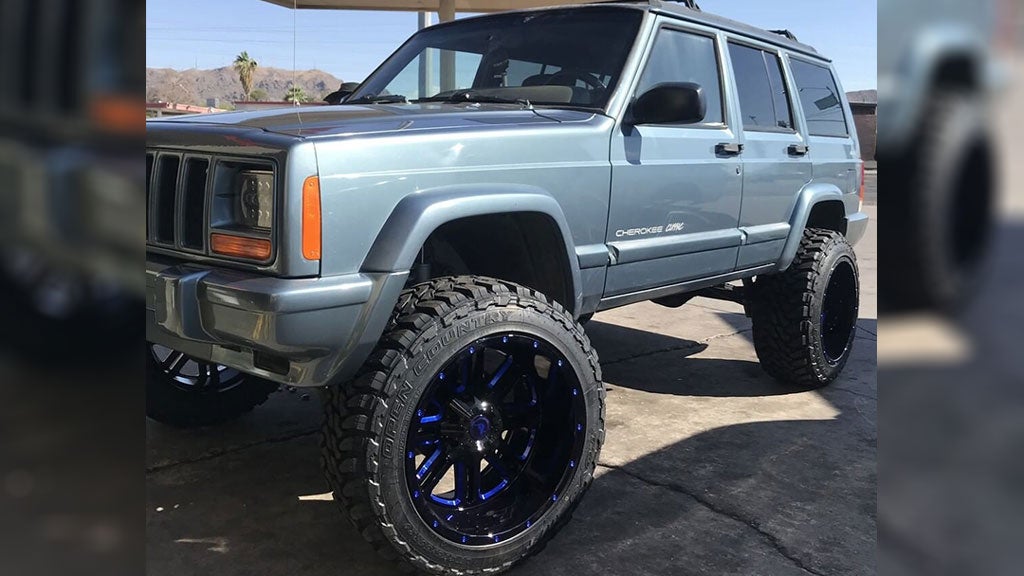
These specifications collectively determine how a wheel fits, looks, and performs on your specific Jeep Cherokee model.
Types of Jeep Cherokee Wheels
The market offers a diverse range of wheel types, each with distinct advantages and disadvantages suitable for different driving needs and preferences.
-
OEM (Original Equipment Manufacturer) Wheels: These are the wheels that came with your Jeep Cherokee from the factory.
- Pros: Guaranteed fitment, engineered for specific vehicle performance, typically high quality, maintain original vehicle aesthetics.
- Cons: Limited design choices, can be expensive to replace, may not offer the aggressive look or specific performance characteristics desired by enthusiasts.
-
Aftermarket Wheels: These are wheels produced by companies other than Jeep. They offer a vast array of designs, materials, and sizes.
- Steel Wheels:
- Pros: Very durable, highly resistant to bending and cracking, easy to repair (can often be hammered back into shape), most affordable option, good for serious off-roading where damage is likely.
- Cons: Heavy (can impact fuel economy and unsprung weight), limited aesthetic appeal, prone to rust if not properly maintained.
- Alloy Wheels (Aluminum Alloy): The most popular aftermarket choice.
- Pros: Lightweight (improves handling, braking, acceleration, and fuel economy), excellent heat dissipation (beneficial for brakes), vast array of designs, finishes (painted, machined, polished, chrome), and sizes.
- Cons: More expensive than steel, can bend or crack more easily than steel under severe impact (though modern alloys are quite robust), more challenging to repair.
- Forged Wheels: A premium type of alloy wheel.
- Pros: Extremely strong and incredibly lightweight due to the manufacturing process (forging compresses the metal, eliminating porosity). Superior performance and durability.
- Cons: Very expensive, usually reserved for high-performance or competition vehicles.
- Steel Wheels:
-
Application-Specific Wheels:
- On-Road/Street Wheels: Focus on aesthetics, comfort, and sometimes lighter weight for improved street performance. Often larger diameters with lower profile tires.
- Off-Road Wheels: Prioritize strength, durability, and specific features like beadlock compatibility (which physically clamp the tire bead to prevent it from coming off the rim at very low tire pressures). Often smaller diameters to allow for more tire sidewall, which is crucial for off-road articulation and cushioning.
Choosing the Right Wheels for Your Jeep Cherokee
Selecting the perfect wheels involves balancing various factors to match your Cherokee’s intended use, your budget, and your personal style.
-
Define Your Usage:
- Daily Driver: Prioritize ride comfort, fuel efficiency, and aesthetics. Alloy wheels are often a good choice.
- Light Trails/Overlanding: Balance durability with weight. Robust alloys or even steel wheels might be considered, depending on the trail severity.
- Serious Off-Roading: Durability and strength are paramount. Steel wheels, heavy-duty alloys, or beadlock-capable wheels are preferred. You’ll likely need specific offset/backspacing to accommodate larger tires and suspension articulation.
- Show Vehicle/Street Performance: Aesthetics, unique designs, and lightweight forged wheels might be prioritized.
-
Consider Tire Size: Your wheels must accommodate your chosen tires. If you plan to run larger tires, ensure the wheel width is appropriate. Larger tires often necessitate a lift kit and specific wheel offset/backspacing to prevent rubbing.
-
Budget: Steel wheels are the most economical, followed by cast alloy, and then forged wheels at the high end. Factor in not just the wheel cost, but also potential installation fees, new lug nuts, and balancing.
-
Aesthetics: This is a personal choice. Consider the finish (black, chrome, machined, bronze), spoke design, and how the wheel complements your Cherokee’s color and overall theme.
-
Performance and Safety: Lighter wheels reduce unsprung weight, improving handling, braking, and acceleration. Always ensure the wheels have the correct load rating for your vehicle, especially if carrying heavy loads or towing.
-
Fitment Checks (Crucial!):
- Bolt Pattern: Double-check this for your specific Cherokee generation (5×4.5" for XJ/KJ/KK; 5x110mm for KL).
- Offset/Backspacing: Use an online calculator or consult a wheel specialist. Incorrect offset can lead to tires rubbing on fenders or suspension components, or negatively impact handling and bearing wear.
- Hub Bore: Ideally, wheels should be hub-centric, meaning the hub bore precisely matches the vehicle’s hub. If it’s larger (lug-centric), hub rings are necessary to prevent vibrations.
Installation and Maintenance of Jeep Cherokee Wheels
Proper installation and ongoing maintenance are vital for wheel longevity, safety, and optimal vehicle performance.
-
Installation:
- DIY vs. Professional: While installing wheels yourself is possible with basic tools (jack, jack stands, lug wrench, torque wrench), professional installation ensures proper balancing and correct lug nut torque.
- Torque Specifications: Always tighten lug nuts to the manufacturer’s specified torque. Overtightening can stretch studs or warp rotors, while undertightening can lead to wheels coming loose. Use a torque wrench.
- Re-torque: After driving 50-100 miles on newly installed wheels, re-torque the lug nuts as they can settle.
-
Maintenance:
- Cleaning: Regularly clean your wheels to remove brake dust, dirt, and road salt, which can corrode finishes. Use appropriate wheel cleaners for your wheel material and finish. Avoid harsh chemicals on clear-coated or polished wheels.
- Rotation and Balancing: Rotate your tires (and wheels) according to your vehicle’s maintenance schedule (typically every 5,000-8,000 miles) to ensure even tire wear. Re-balance wheels if you notice vibrations or after any tire service.
- Inspection: Periodically inspect your wheels for cracks, bends, chips, or signs of corrosion, especially after hitting potholes or off-road excursions. Address any damage promptly.
Potential Challenges and Solutions
Even with careful selection, challenges can arise. Here are some common issues and their solutions:
- Tire Rubbing:
- Challenge: Larger tires or incorrect offset/backspacing can cause tires to rub on fenders, inner fender liners, or suspension components, especially during turns or suspension compression.
- Solution: Consider a lift kit, fender trimming, installing fender flares, or adjusting wheel offset/backspacing. Spacers can push wheels out, but must be used carefully and safely.
- Vibrations:
- Challenge: New wheels or tires can sometimes cause vibrations, especially at certain speeds.
- Solution: Most common causes are unbalanced wheels, incorrect hub bore (requiring hub rings), or bent wheels. Have them professionally balanced and inspected.
- Corrosion/Finish Degradation:
- Challenge: Road salt, brake dust, and harsh chemicals can damage wheel finishes.
- Solution: Regular cleaning, using pH-neutral wheel cleaners, and applying protective coatings (waxes, sealants) can help. For severe corrosion, professional refinishing may be necessary.
- Finding the Right Fit for Older Models:
- Challenge: Some older Cherokee models (like the XJ) have smaller wheel wells, limiting larger tire options without significant modification.
- Solution: Research community forums for proven wheel and tire combinations, or consult with experienced off-road shops. Adapters can change bolt patterns but introduce another potential point of failure if not high quality.
Price Table: Estimated Costs for Jeep Cherokee Wheels
Please note: Prices are highly variable based on brand, material, design, finish, and market conditions. These are estimated ranges per wheel. Installation, balancing, and lug nuts are usually separate costs.
| Wheel Type | Common Sizes (Diameter x Width) | Estimated Price Range (Per Wheel) | Key Features / Notes |
|---|---|---|---|
| Steel Wheels | 15×7" to 17×8" | $80 – $150 | Most durable, heaviest, utilitarian look, prone to rust |
| Cast Alloy | 15×7" to 20×9" | $150 – $400 | Lightweight, vast design options, good performance |
| Forged Alloy | 17×8.5" to 20×9" | $500 – $1000+ | Ultra-light, extremely strong, premium performance |
| Beadlock-Cap. | 15×8" to 17×9" | $250 – $600 | Designed for off-road, allows very low tire pressure |
| OEM Replacment | Varies by Model & Year | $200 – $700+ | Exact factory match, often sourced used or from dealers |
Frequently Asked Questions (FAQ) about Jeep Cherokee Wheels
Q1: What is the standard bolt pattern for a Jeep Cherokee?
A1: It depends on the generation:
- XJ (1984-2001), KJ Liberty (2002-2007), KK Liberty (2008-2012): 5×4.5 inches (or 5×114.3mm).
- KL Cherokee (2014-2023): 5x110mm.
Always confirm your specific model year.
Q2: Can I put larger wheels and tires on my Jeep Cherokee?
A2: Yes, within limits. Many Cherokee owners upgrade to larger wheels and tires for aesthetics or off-road performance. However, going too large will likely require modifications like a lift kit, fender trimming, or different wheel offset/backspacing to prevent rubbing and maintain proper suspension articulation.
Q3: What is wheel offset and why does it matter for my Cherokee?
A3: Offset is the distance from the wheel’s mounting surface to its centerline. It dictates how far a wheel sits in or out from the fender. Correct offset is crucial for tire clearance with suspension components and fenders, and it also affects steering geometry and bearing wear. A common desire for off-road Cherokees is a slightly negative offset to push wheels out for a wider stance and better stability.
Q4: Do I need hub rings for my aftermarket wheels?
A4: If your aftermarket wheels have a larger center bore than your Cherokee’s hub (i.e., they are "lug-centric" instead of "hub-centric"), then yes, hub rings are highly recommended. They fill the gap, ensuring the wheel is centered on the hub, which prevents vibrations and ensures proper load distribution.
Q5: How often should I rotate my Jeep Cherokee’s wheels and tires?
A5: It’s generally recommended to rotate your tires every 5,000 to 8,000 miles, or as specified in your Cherokee’s owner’s manual. Regular rotation helps ensure even tire wear, extending tire life and maintaining consistent handling characteristics.
Q6: Are steel or alloy wheels better for off-roading with a Cherokee?
A6: Both have merits. Steel wheels are heavier but incredibly durable and easier to repair if bent, making them a popular choice for serious rock crawling or expeditions where damage is expected. Alloy wheels are lighter, improving performance and fuel economy, and are available in stronger designs for off-road use, but can be more prone to cracking under severe impact. Many off-roaders opt for robust aftermarket alloy wheels or even beadlock-capable alloys.
Q7: How do I know if a specific wheel will fit my Jeep Cherokee?
A7: You need to check three main specifications:
- Bolt Pattern: Must match your Cherokee’s pattern (e.g., 5×4.5" or 5x110mm).
- Diameter and Width: Ensure it’s within a reasonable range for your vehicle and tire choice.
- Offset/Backspacing: This is critical for clearance. Research what offset ranges work for your Cherokee model, especially if you plan larger tires or a lift. Consulting a reputable wheel dealer or an online fitment guide is recommended.
Conclusion
Jeep Cherokee wheels are far more than just aesthetic additions; they are fundamental components that define your vehicle’s performance, safety, and character. Whether you’re aiming for a rugged off-road beast, a stylish street cruiser, or a reliable daily driver, understanding the nuances of wheel types, specifications, and maintenance is paramount. By carefully considering your driving needs, budget, and desired aesthetics, and by paying close attention to critical fitment details like bolt pattern and offset, you can select the perfect set of wheels to unlock your Jeep Cherokee’s full potential and embark on your next adventure with confidence and style.

